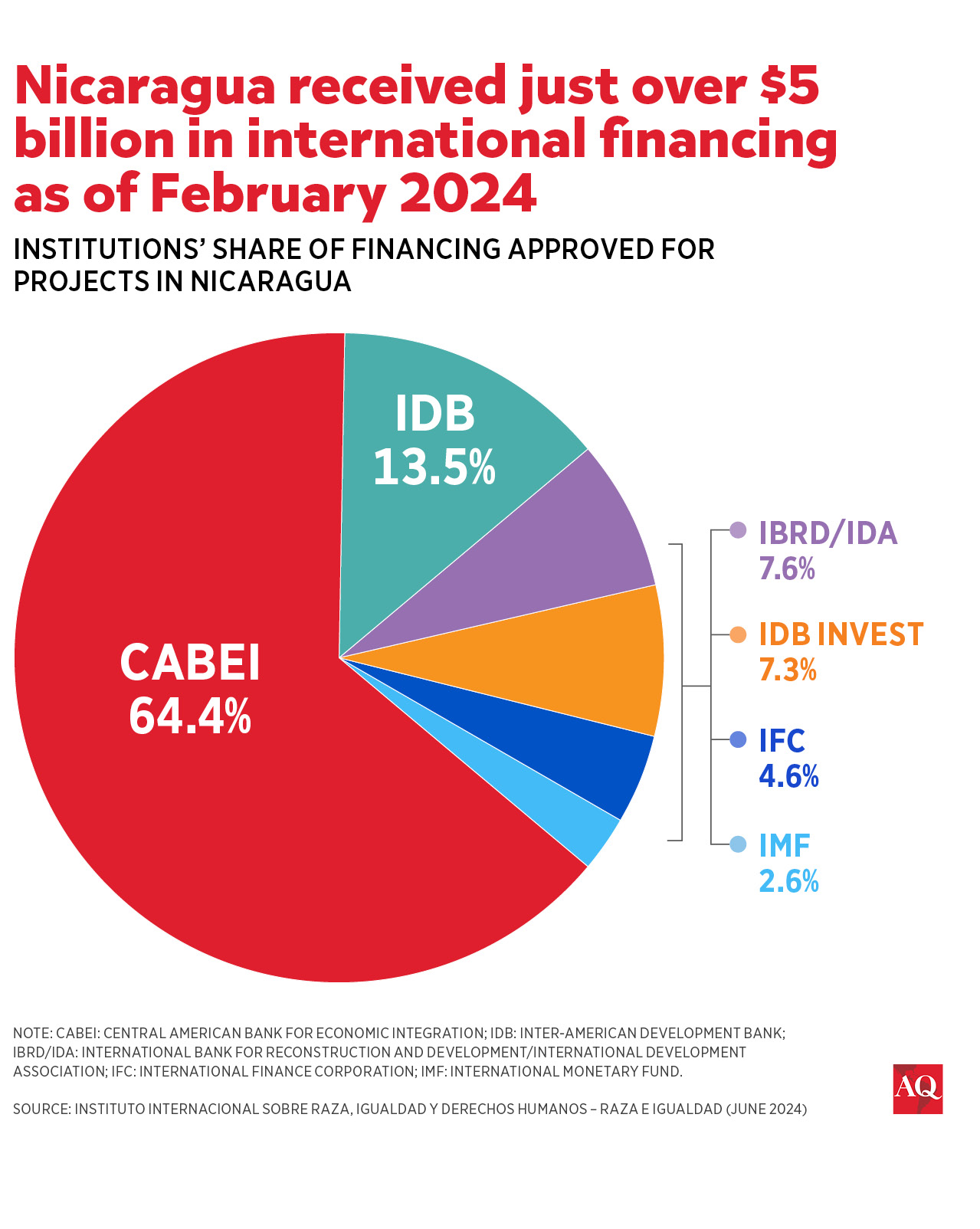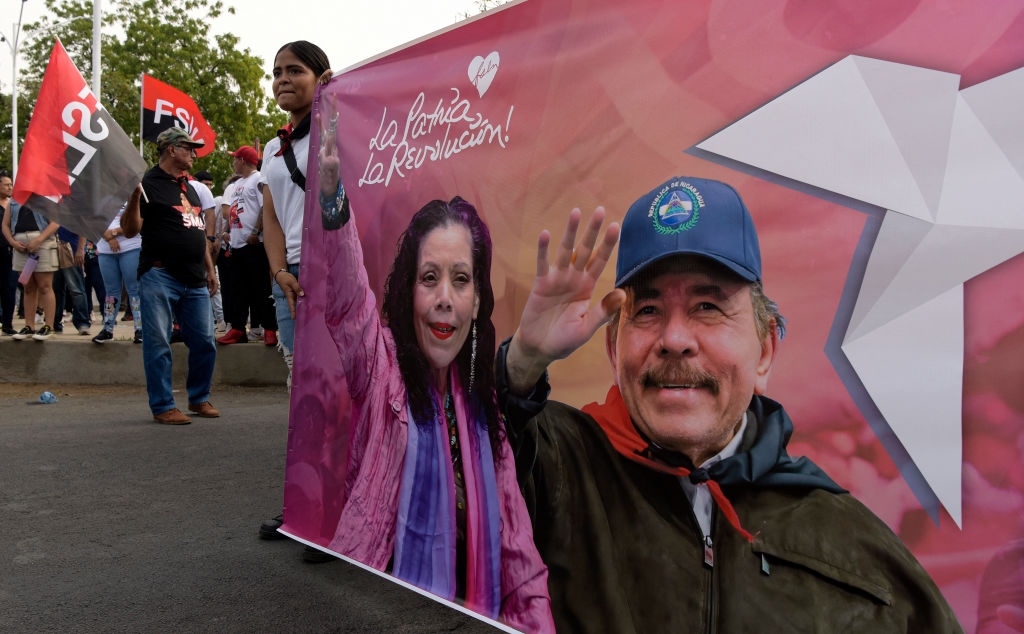SAN JOSÉ, Costa Rica—For years, Washington has advocated for the restoration of democratic governance in Nicaragua. However, despite its imposing numerous stringent sanctions on individuals, state-run entities, and members of Nicaragua’s National Assembly, the regime led by President Daniel Ortega and his wife, co-president Rosario Murillo, has evolved into an overt dictatorship with a tighter grip on key institutions and overwhelming control over society.
Some argue that the U.S. and the international community have given insufficient attention to Nicaragua as the country’s political situation has deteriorated over the past six years. President Donald Trump’s return to the White House—with an anticipated focus on authoritarian leftist governments in Latin America aligned with Russia or China—raises the question of whether his administration will increase efforts to pressure Ortega’s regime.
If the new U.S. administration is serious about pressuring Ortega to negotiate a democratic transition, Washington should consider reversing recent cuts to assistance provided to this country’s opposition—and, by extension, to the entire region—through USAID, an organization that for years has supported the democratization of the hemisphere. The White House will do well to review the financial networks that sustain Ortega’s authoritarian rule, including foreign investment, international financial aid and lending, and access to the U.S. market for exports, gold mining, and cattle farming. A revision of the Central America-Dominican Republic Free Trade Agreement, CAFTA-DR, into effect for Nicaragua since April 2006 and by which the country has preferential access to the markets of the world’s largest economy, deserves top priority as Managua’s regime is neglecting compliance with several clauses of the accord.
Any disruption in these areas could undermine the regime’s stability. Ortega relies on tight financial control and stringent authoritarian measures to maintain his grip on the Nicaraguan population. But Trump’s moves so far, terminating humanitarian parole and freezing U.S. assistance to human rights organizations, seem more likely to weaken the Nicaraguan opposition.
Nicaragua’s so-called exceptionalism
Since 2007, Ortega and Murillo have controlled Nicaragua. She was recently named co-president thanks to a constitutional reform that extended the presidential term to 2028 and buttressed the regime’s power over the press, the Catholic Church, and civil society organizations.
Before the widespread protests and repression of 2018, Nicaragua was considered an exception in a region impacted by high levels of violence. Street gangs and drug-trafficking organizations were and continue to be present in Nicaragua, but homicide levels remain low, with Nicaragua’s numbers (6.2 per 100,000 inhabitants) significantly lower than those of Guatemala (16.7), Honduras (31.1) and even Costa Rica (17.1). The only Central American country with lower levels of homicide is El Salvador (2.4), where the government has incarcerated 2% of its adult population.
After the 2018 protests, the clampdown on dissent continued. Between 2007 and March 2024, authorities shuttered more than 5,000 non-governmental organizations working on human rights, healthcare, and education. Since December 2021, 28 universities, including the Jesuit-affiliated University of Central America, have been forcibly closed or confiscated.
These measures, coupled with ongoing repression, have driven over 260,000 Nicaraguans to flee, primarily to Costa Rica. By mid-April 2024, 138 political prisoners remained in custody. The Ortega regime has used political prisoners as bargaining chips in its negotiation over sanctions with the U.S.
Trump 2.0: will something change?
During the Biden administration, the U.S. imposed multiple rounds of sanctions on Nicaraguan government officials, targeting individuals and entities associated with Ortega’s regime. From 2020 to 2024, the total number of asset-blocking sanctions reached 47 individuals and 15 entities associated with the Nicaraguan government. Visa restrictions targeted over 1,000 Nicaraguan individuals and their family members.
These sanctions aimed to put pressure on the regime by tackling the government’s financial sources. During his first administration, Trump also imposed sanctions on high-level officials, but the results of these sanctions remain unclear.

So far, the prospects for Nicaragua under Trump’s second term are mixed at best and negative at worst. Secretary of State Marco Rubio has referred to Nicaragua as a “democracy that has been completely annihilated” and has denounced the country’s role as a springboard for undocumented migrants planning on entering the U.S.. Rubio told reporters on February 4 that the administration “has not taken a position” on whether Nicaragua should remain in CAFTA, a free trade deal that includes Central America and the Dominican Republic. “Today we must acknowledge that Nicaragua is not a democracy,” he said, but added there would be “impacts” to removing it from the deal.
Nicaragua’s ties with Russia—including Russia’s increasing military presence (from an espionage center in Managua to Russian warships in the country)—and China (in relation to trade and investment), are additional concerns for Trump’s administration.
However, Trump’s first policy decision concerning Nicaragua was to terminate the humanitarian parole program, which also affects nationals from Haiti, Venezuela, and Cuba. This represents a significant setback for the hundreds of Nicaraguans who relied on this program as a legal means to enter the U.S. and escape the regime’s persecution. If the U.S. aims to pressure Ortega into negotiating with the Nicaraguan opposition in exile and facilitating a democratic transition, its strategy should target the key financial resources that support the regime.
The regime’s financial muscle
It’s worth keeping in mind that the U.S. remains Nicaragua’s largest trading partner and the destination of around two-thirds of its exports. In December, the U.S. Trade Representative launched an investigation into the country’s labor and human rights abuses. If the probe leads to sanctions, it could trigger a significant backlash from Nicaraguan companies against the regime.
Access to international funding is vital for the regime’s finances. Evidence suggests that financial institutions such as the Central American Bank for Economic Integration (CABEI) and the World Bank have continued to lend money to the Ortega-Murillo administration despite considerable evidence that these funds are used without proper oversight—and often support government-aligned contractors. Data compiled by the Washington-based International Institute on Race, Equality, and Human Rights showed that in February of last year, several multilateral institutions funded 97 development projects in the country with almost $5.1 billion in financial assistance.
The World Bank’s financing of the 2024 Nicaraguan census is particularly concerning. Some media outlets report that the census is a tool for control and repression, as the data collected is being used to track properties owned by Nicaraguans abroad and relatives of opposition members. The International Monetary Fund’s most recent country report praised the government’s macroeconomic policies and fiscal measures, and while it did not mention ongoing human rights violations, it urged authorities to improve the rule of law “in a meaningful way” and to safeguard the autonomy and transparency of the judicial system. Most experts agree that Nicaragua’s judicial system is also controlled by Ortega’s regime.
Another overlooked issue is the nation’s gold mining and beef exports. Reports suggest that Ortega uses illegal gold mining operations to secure the loyalty of high-ranking military officials. Concessions for open-pit mining to Canadian, U.S., and Chinese companies have more than tripled under Ortega’s administration, at least 299 by November 2023, and an additional 14 exclusively to Chinese companies in 2024. These funds finance the military and police, enabling ongoing repression against the population. Cattle farming and the expansion of the agricultural frontier have intruded upon Indigenous lands, worsening environmental degradation and displacing local communities.
While Ortega and Murillo have been weaponizing anti-narcotics and anti-terrorist policies to muzzle political dissent, the Nicaraguan military has become the force that confiscates the lowest amount of drugs per year in Central America, a fact that adds to mounting evidence regarding the use of drug-related profits to finance the regime.
On January 20, Trump moved to freeze all funding for U.S.-sponsored development and human rights organizations, a decision that was swiftly enthusiastically endorsed by Nicaragua’s official media. Rather than bolstering these efforts, the new administration’s policies will likely reinforce the regime’s grip on power while further marginalizing the independent voices that challenge its partisan propaganda.







